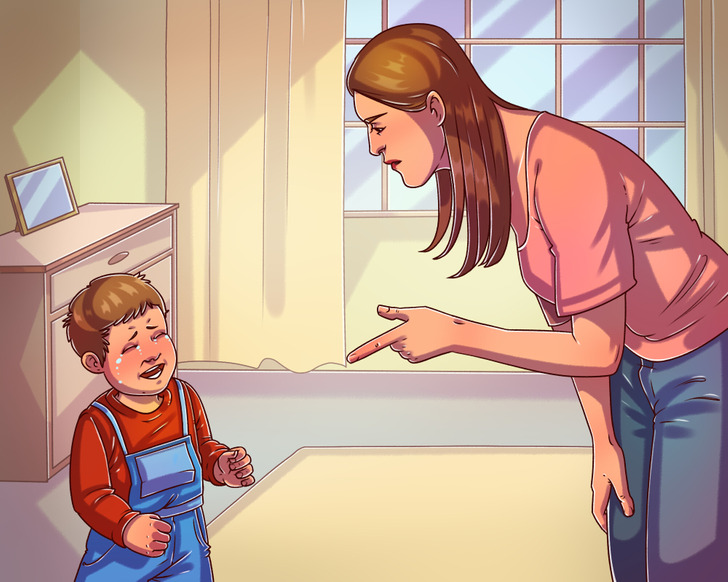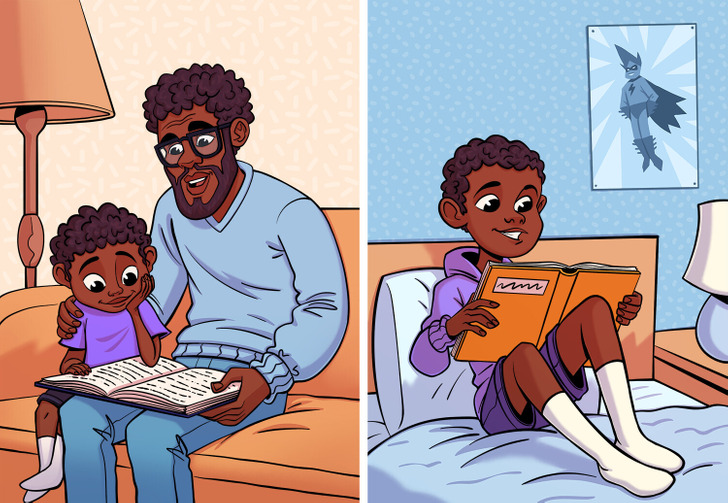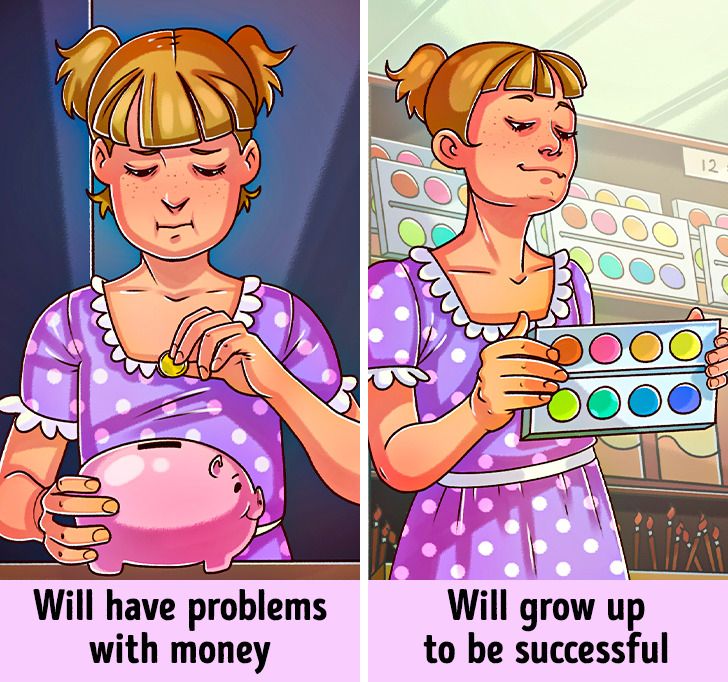
I’ve always been a patient person. I got to practice my patience when my father remarried following my mom’s death. So, when my in-laws tried to get me to break up with my husband before we could get married, I just used what I had learned earlier in life to withstand their onslaught.
You know, sometimes trying to find your place in someone else’s family can be really tricky. At least, it was for me when I met my husband’s family. See, I’m originally from Morocco, while my husband, Jeremy, was raised by an extremely conservative family from Georgia. That should be enough to give you an idea of what I faced.

Man and woman on a date | Source: Getty Images
I immigrated to the US shortly after my mother passed away. I was 11 at the time, and it felt like my entire world was coming to an end. To add to this, my dad married a new woman only a little over a year after Mom’s death. Naturally, adjusting to life in a new country and coming to terms that there was a new woman in my mom’s place was jarring.
My stepmom wasn’t a bad person, but we never got along. I think she felt insecure about the fact that she could never have kids, so she would often be mean and distant toward my sister and me. She used to try to upset us all the time by doing petty things that she knew would make us uncomfortable, but luckily my mom had taught me to always smile when people were intentionally being mean to me.

A young girl in an airplane | Source: Getty Images
This turned out to be a great defense mechanism, and my stepmom couldn’t bear that her tricks weren’t working on me. Eventually, things died down and we made our peace, but I would never forget how effective it was to just smile through whatever petty new ploy she had devised to try and upset me. It truly was one of the greatest gifts my mom had ever given me.
But my stepmom was a minor hindrance compared to Jeremy’s family. When I met them for the first time, I knew I was in for a lengthy cold war.

A woman yelling at a young girl | Source: Getty Images
I met Leona, Jeremy’s mom, and the rest of the Fergus family at one of their family dinners. By that time, I had been dating Jeremy for almost a year, and they had used every excuse to avoid inviting me to their dinners. This time, Jeremy ensured that they couldn’t weasel out of meeting me, and he even told his mom to prepare a few dishes that I could eat, since I steer clear of any pork and alcohol.
While my loving boyfriend was sure there would be something for me, I knew better than to just blindly trust people who clearly had misgivings about me to respect my personal choices, so I ate as I would before a fast and prepared myself for sitting around the dinner table while everyone enjoyed their meal.

A large dinner table with people sitting around it | Source: Getty Images
When we showed up at Jeremy’s parents’ house, the family greeted me with half-hearted smiles and quick hugs before we all settled down to eat. I knew the greetings would be awkward and stiff, but what I didn’t anticipate was Leona bringing a peppy blonde woman up to me with a huge smile and saying, “Oh, Aleah, you just have to meet Diane, Jeremy’s last girlfriend. We’re all still very close and I thought you two might hit it off.”
Diane looked slightly embarrassed, and shook my hand with a smile that seemed to say, “I’m sorry, I know, but what could I do?” I introduced myself and we exchanged a few pleasantries before she greeted Jeremy with a huge hug. She immediately launched into a conversation with him about what was going on in his life, ignoring me completely. Jeremy answered a few questions, grabbed my hand, and steered me to our seats.

A woman shaking another woman’s hand | Source: Getty Images
At the table, things just got worse. Leona opened all the dishes, and every single thing had pork in it. The mac and cheese had bacon bits in, the mashed potatoes had lard in, and even the turkey was wrapped in bacon. After unveiling all the food, Jeremy’s mom looked at me, apologized for all the pork, and offered me a drink. “I don’t drink, but I’ll gladly take a glass of water,” I said with a smile. Slightly crestfallen, Leona got up to get me one.
During the meal, the entire family kept making off-handed, passive-aggressive, and slightly racist comments clearly directed toward me. Meanwhile, Diane was showered with compliments. You’d expect she was royalty with how the family sucked up to her. But I knew exactly how to handle the situation.

A woman enjoying a glass of water | Source: Getty Images
Instead of letting my annoyance show, I once again employed my mom’s wisdom. I smiled at every so-called joke, and even threw a few of my own compliments at Diane. I told Leona how lovely the spread looked, and thanked her profusely when she went to refill my cup of water. I could see Jeremy’s mom seething at my pleasant demeanor.
The night ended and we said our goodbyes. I refrained from complaining to Jeremy about his family. I could handle it. But things didn’t get better from there. Family dinners were suddenly off-limits to anyone who wasn’t also a Fergus — although Diane was apparently an exception — so I would often spend Christmas on my own or with my sister. They never drove a wedge between myself and Jeremy, and imagine their shock when he eventually proposed.

Two sisters celebrating Christmas together | Source: Getty Images
Now, Leona and the rest of the family never bothered to learn anything about my culture. They assumed the wedding would be a regular ceremony, but Jeremy and I had planned on blending traditions. So when all the women, Diane included, showed up wearing white, I was all smiles, complimenting their outfits all the way. This didn’t go down well.
Meanwhile, my outfits were made up of every color imaginable, and I outshone them in every photo. There’s even one picture of Leona with the biggest sour expression I had ever seen. It was a wonderful day.

A traditional wedding dress | Source: Getty Images
But the unspoken feud came to a head last Christmas when Leona suggested I host. Naturally, I accepted, even though I knew she only offered because she hoped I would be overwhelmed. Fortunately, she didn’t count on the fact that I often cooked, and had been since I was a young girl. So my spread was something to marvel at.
Mashed potatoes, mac and cheese, turkey, glazed ham, Brussels sprouts, green bean casserole, roasted carrots, and potatoes, freshly baked bread, corn bread, and an entire assortment of pies. Even I was impressed. But of course, with her plan in ruins, Leona did the next best thing. She started shouting at me.

A big dinner | Source: Getty Images
“You’ve got to be kidding me! How could you of all people have managed this?! I know you hired a catering company, Aleah! Just to make me look bad. Admit it!”
Surprised at her outright anger, I looked at her, then at Jeremy. Luckily he stepped in.
“Mom, Aleah slaved away for two days to make sure we had a great Christmas dinner. I don’t think you acting like this is very mature or fair. She has been nothing but a good host, and you accuse her of being petty, like a child who had hoped to one-up someone. I think you owe her an apology, or you should leave.”
There was a long pause. Everyone wondered what would happen next, plates in hand.

A woman cooking dinner | Source: Getty Images
Leona took a deep breath and looked at me. “You won,” she muttered and sat down dejectedly. Before Jeremy could say another word, I walked over to my mother-in-law, got on my knees before her, and took her hands in mine. “Leona, this isn’t a competition. I love your son deeply and I don’t want this cold war between us.”
She looked at me with new-found respect, and I could see the hatchet was buried. The war between us ended with a big hug and a great dinner, and although we still differ about things, we have grown quite fond of each other over the last few months.
10+ Mistakes Every Parent Should Avoid for Their Child’s Financial Future
Fearing for their children’s futures, parents search for universal parenting techniques that will put their kids on the route to a prosperous job and a happy life. But times are changing, and the old principles of success are no longer relevant. Sometimes, parents’ actions, intended to be helpful, can actually create challenges for their children’s future.
1. Not allowing their kid to fail

Perfectionist parent often strives for perfection themselves, leading them to expect increasing levels of perfection from their child as they grow older — from the child’s artwork never being good enough to their bed not being made perfectly or not studying hard enough. The child faces constant criticism and reprimands but is never allowed to learn from their mistakes. Children of perfectionist parents may grow up to be perfectionists themselves or develop low self-esteem and lack confidence. Both outcomes can negatively impact their future careers.
- Anna’s mother always compared her to Mary, saying, “Look how tidy Mary is compared to you, Anna!” Despite Anna’s efforts to emulate Mary, she never measured up, and her mother’s criticism only intensified. Anna’s mother never allowed her the chance to improve her habits and learn basic skills. Now at 25 years old, Anna still compares herself to others and always comes up short in her own eyes. Needless to say, this constant comparison has taken a toll on her self-esteem.
2. Paying a child for good grades

This topic remains a subject of debate, but consider this perspective: imagine yourself as a contractor continually paying more for a product or service, with the child as the supplier providing it in exchange for money or rewards. It doesn’t sound like a good idea, does it?
- Alexandra’s parents sought to motivate their daughter to excel in her studies by offering money as an incentive. Initially, Alexandra’s grades improved, suggesting the approach was effective. However, her parents later discovered that she had been fabricating stories about an imaginary illness and sharing them with her teachers. She even falsely claimed that her parents constantly criticized her for poor grades. The sympathetic teacher then raised Alexandra’s grades out of pity. Following this incident, Alexandra’s parents discontinued the practice of paying for grades and sought guidance from a child psychologist.
3. Preventing their child from expressing their feelings

Sometimes, adults dismiss a child’s feelings as wrong — insisting that bruises don’t hurt, feeling anger toward a child who hit them is shameful, or being sad even with a valid reason is incorrect. Parents often do this with good intentions, wanting to teach their children proper behavior. However, it’s crucial to recognize that a fundamental skill for modern individuals is the ability to acknowledge and manage their feelings, emotions, and needs.
- Kate, now 37, vividly remembers how her mother forced her to give away her beloved doll to another girl, admonishing her for being “greedy” and scolding her for getting upset over a “stupid toy.” Kate never got her doll back. Over the years, she has worked hard to assert herself, learning to say “no” to demanding people, including her boss and coworkers. Despite this, Kate often feels guilty whenever she refuses to comply with their requests.
4. Failing to support their child in front of strangers

Every child needs the assurance that their parents will stand up for them in any conflict, regardless of the situation, and won’t blindly trust the words of authority figures like teachers, principals, or neighbors. When parents allow their children to speak up for themselves when they are ready to take responsibility for their actions, it helps them develop healthy self-esteem and a sense of personal accountability.
- Maggy was raised by her grandmother, who often said, “But what will other people think?” Although her grandmother loved Maggy and wanted the best for her, she constantly emphasized the importance of public opinion. As a result, Maggy struggles to make her own decisions and even relies on her friends’ opinions when choosing something as simple as dessert.
5. Drawing inspiration and comparing to successful people

Each generation has its own set of heroes whom young people aspire to emulate. In recent decades, the tales of personal success from wealthy and influential individuals have become widespread. However, it’s not as simple as learning their life story and achieving happiness. If it were that easy, everyone who reads their books would have solved all their financial problems by now.
- Alex developed a passion for computers from a young age. Inspired by the story of Steve Jobs that his dad shared with him, Alex immersed himself in learning everything about Apple. When it came time to choose a university, Alex initially believed he didn’t need higher education because Steve Jobs succeeded without it. Eventually, Alex realized the importance of education for his path and pursued college to advance his career. Now, Alex jokes, “What worked for Steve Jobs is just a waste of time for an ordinary guy like me.”
6. Pressuring their child to decide on their future career

The notion that a person should stick to one career for their entire life is likely outdated and impractical. Many modern occupations didn’t exist a decade ago, while others have already become obsolete.
- Since childhood, Max had a passion for exploring computers and understanding various software programs. Despite his parents’ concerns, he pursued this interest and eventually discovered online courses in software testing. Now, he is thriving in this field, leveraging his potential and skills.
- Laura, at 37, worked as a sociologist for a major consulting firm but found it challenging to maintain her career after having her son. During maternity leave, she rediscovered her love for photography. Starting with unique photos of her child, Laura progressed to offering photoshoots for friends’ and acquaintances’ kids. Over time, she opened her photo studio. Laura now earns as much as her husband and successfully manages her professional life while caring for her family. This shift exemplifies the evolving nature of careers and the importance of embracing new opportunities.
7. Arguing about money

Since children may absorb long-lasting messages from these circumstances, it’s crucial to avoid arguing about money or other matters in front of them. Instead of one-on-one conflicts, which can cause youngsters to take sides and become distressed, talks should be led in a way that promotes involvement.
- Chris grew up witnessing his parents argue about money. When he went to college at 17 and moved away, he struggled with managing his finances and spending on unnecessary items. He now fears starting relationships, believing that money is the root cause of his sadness.
8. Prohibiting the child from using social networks

Social networks have become today’s equivalent of the yards and neighborhoods where we used to play as children. Kids can learn valuable skills through computer programs integrated with social media platforms. While parents should remind their kids about online safety rules, depriving children of this experience can be harsh.
- Aria’s mother was surprised to discover that her 10-year-old daughter had learned to create cool videos. Even more surprising was the realization that Aria had learned this skill from using TikTok. Now, creating short videos has become a family hobby for them.
9. Teaching the kid that they have the stuff at home

Many of us recall times when we asked our parents to buy us things, only to hear, “We already have that at home; we don’t need it.” Some parents repeatedly expose their children to such situations, unintentionally discouraging them from getting what they truly need. This pattern can significantly impact their financial habits as adults. On the other hand, constantly satisfying a child’s every need can also have negative effects.
- Jan’s mother often tells him they have things at home and they don’t buy them from the store. Jan has learned to overlook his needs, and with each subsequent request, he withdraws more, knowing not to ask. When Jan grows up and earns his income, money will go towards trivial things because that’s how he’s learned to live.
10. Preventing children from getting into conflicts

The ability to engage with others is perhaps one of the most crucial professional skills one can possess. It’s important not only to help children make friends but also to teach them how to engage in healthy arguments. People often hold differing opinions, and there are various ways to express emotions. The sooner children grasp this concept, the easier their interactions with others will be, including in professional settings.
- Michaela spent her life avoiding conflicts, preferring to agree with others rather than engage in disputes. She believed that someone always had to be the “smarter” one, but this approach proved more harmful than beneficial. One day, Michaela learned about active listening and decided to apply this approach in her professional life. She excelled at paying attention to others’ perspectives while also expressing her feelings when others attempted to take advantage of her. Initially, people found her communication style unconventional, but conflicts with coworkers became more constructive, leading to mutually beneficial resolutions.
11. Helping their child learn to save money

The world is always changing, and old ways of making or saving money might not work anymore. We can’t predict what skills will be valuable in the future economy. That’s why it’s important to teach kids to be flexible and ready for change, not just to save money.
- Emily’s grandfather saved money his whole life “just in case.” But when that “case” finally happened, a financial meltdown made all his investments lose value. Emily saw this while growing up, and now she’s worried the economy could collapse at any time. She believes the best investment is in her skills and knowledge.
12. Trying to build a strong character with the help of sports

While there’s a widespread belief that sports are beneficial for discipline and character development, excessive competitiveness in professional sports can be detrimental to a child’s physical and mental health. This competitiveness can be fueled by both fellow young athletes and coaches. Only a few individuals become champions, and coaches often prioritize these select few, neglecting the rest of the team. Coping with this unfair treatment at a young age can lead to low self-esteem and confusion about alternative life paths if a child must stop playing sports.
- Tom’s mother pursued rhythmic gymnastics as a child but had to abandon her Olympic dreams due to a leg injury. When Tom was three, his mother enrolled him in gymnastics classes, hoping he would excel. However, Tom struggled in this sport, leading him to lose interest in school, feel like a failure, and struggle to identify his strengths. Now, Tom is studying to become a child psychologist to help parents navigate the challenges of raising children without making the same mistakes.
Being protective of your children is natural, but it’s important to set boundaries. Respecting their privacy is crucial for a healthy parent-child relationship and their personal development. Violating their privacy can have serious negative effects, especially on their mental health.



Leave a Reply